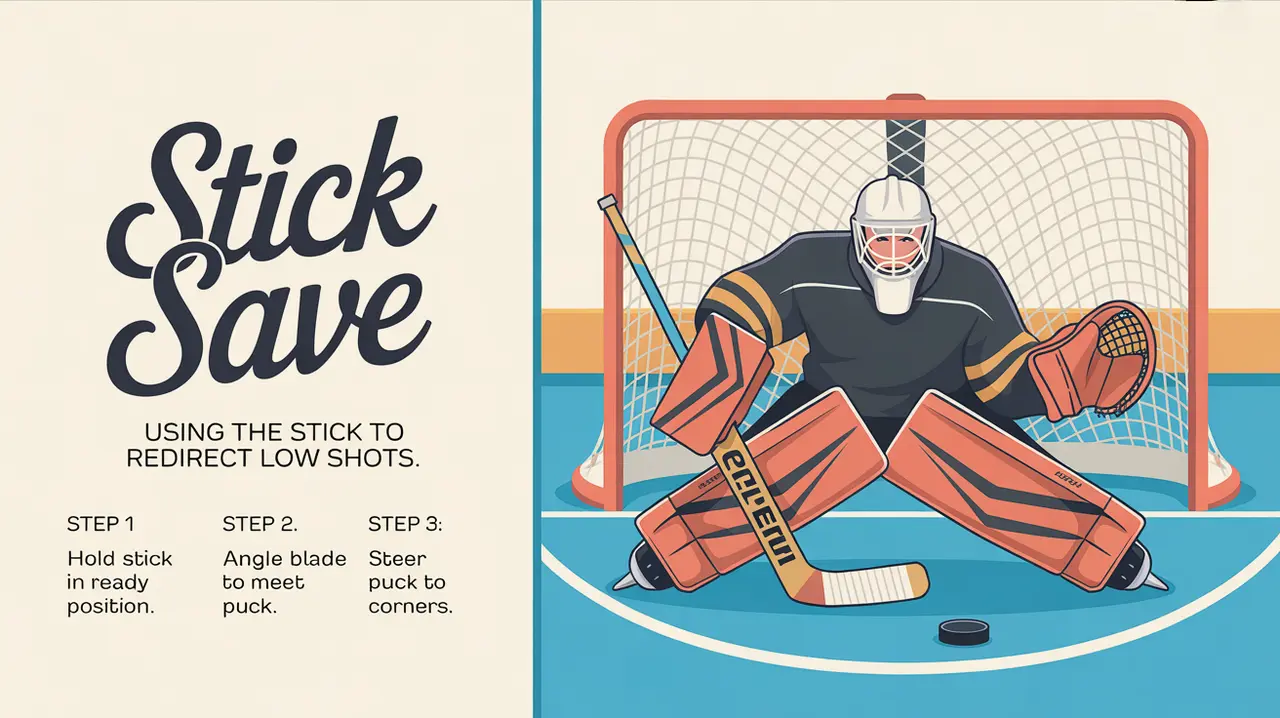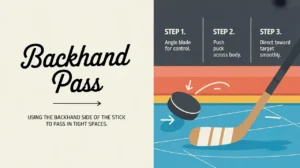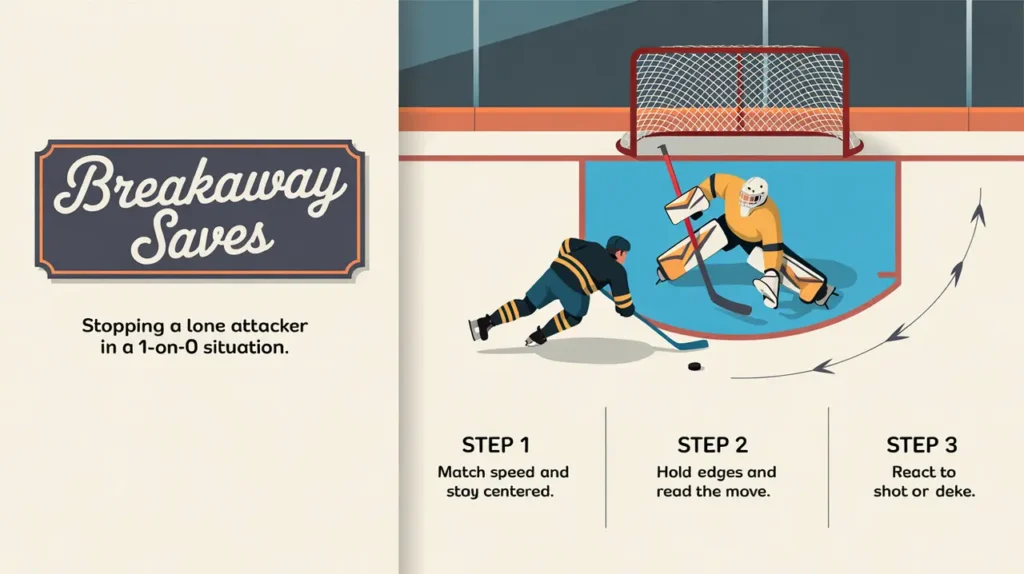Jim’s Intro to Stick Save
Hi folks, Jim here, the only commentator who once thought “stick save” was an rescue outfit for overused hockey sticks.
What is a stick save?
A stick save is when a goalie uses their stick to deflect or stop a shot, usually along the ice or just above the pad level. It’s a fundamental tool for handling low attempts, redirecting pucks safely, and covering the gaps between the pads and the ice.
How does it work?
The stick save relies on angle control, steady hands, and quick reactions:
- Paddle on the Ice: Keep the stick flat to cover the five-hole and stop low shots.
- Blade Angles: Tilt the blade slightly to steer rebounds toward corners or boards.
- Position First: Get square to the shooter so the stick works with your pads, not against them.
- Soft Hands: Absorb impact instead of swatting, which gives you more control.
- Integration with Butterfly: Often combined with a butterfly drop to seal the lower net fully.
- Quick Recovery: Return the stick to ready position after a deflection or block.
How do you make good decisions with it?
- Know the Shot Type: Stick saves are ideal for low wristers, quick snaps, and redirects.
- Angle Over Force: The blade’s angle is more important than a big swing.
- Control Rebounds: Guide pucks into safe zones instead of the slot.
- Stay Calm in Tight: Stick saves are especially useful in scrambles near the crease.
- Use It With Confidence: Hesitation leads to awkward bounces and missed timing.
How do you master it?
Mastering stick saves involves drills that emphasize positioning, angles, and hand control. Goalies practice making stick contact at different speeds and directions, learning to use the paddle like an extension of their pads.
What does it look like when done right?
A clean stick save looks sharp and controlled. The puck hits the blade, angles off into the corner, and the goalie is still square and ready for the next play.
Commentator’s Corner
Jim’s Take
A stick save done right is like redirecting traffic with one subtle hand motion. Blink and you’ll miss it, but it keeps everything moving the right way.
Parent Tip
Work on stick control and angles during off-ice drills. A steady stick leads to cleaner saves and fewer scrambles.
Player Tip
Goalies, keep your stick active and calm. Shooters, aim carefully. Good stick work can make the five-hole disappear.
A Final Thought
The stick save may not get the highlight reels, but it’s a backbone skill. Master it, and you’ll handle low shots with quiet efficiency, keeping your crease locked down.









